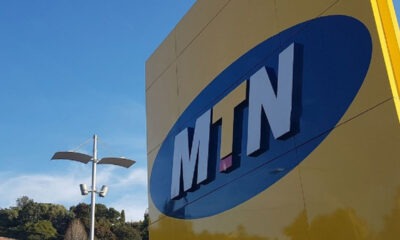- SEC Awaits MTN’s Application to List on NSE
The Securities and Exchange Commission (SEC) last Friday said it was still awaiting the formal application of telecommunication giant, MTN to list its shares on the Nigerian Stock Exchange (NSE).
The telco recently said its shares would be listed before the end of first half of the year.
However, the Acting Director General of SEC, Ms. Mary Uduk, said even though the regulator has had some discussions on the planned listing of the telco, MTN was yet to present a formal application.
“I know that MTN has decided to come to the market through listing by introduction and I know they working hard towards it and have visited the commission. But there has not been any formal application from the company,” Uduk said.
The Chief Executive Officer, MTN Nigeria, Mr. Ferdi Moolman, recently disclosed that save for the disagreement the company had with the Central Bank of Nigeria (CBN) last year, it would have gone ahead with its listing plan.
According to him, they had done a lot of work on the listing and their target was to list in 2018.
He had said: “We are a private company at the moment and we need to change to a public company before we can list. We need to send our directors for training to comply with the Securities and Exchange Commission and the Nigerian Stock Exchange requirements to be able to list and a lot of work went on at the backend on the listing.
“Then, the CBN issue happened. The truth be told, if we had listed while the CBN issue was on, we would have been negligent. That is because we would have gone to offer our shares to the public when we had an issue at hand with the CBN that was substantial. If I remind you, they (CBN) were talking about $8 billion.
“So, I can’t go and list and offer my shares to the public if I have this thing hanging over my neck. We thank God we were able to resolve this on 24th of December. “So, we are working towards the listing and we plan to do the listing before the end of first half 2019 or probably before the end of quarter three.
The MTN boss disclosed that 20 per cent of MTN Nigeria shares are currently owned by Nigerians already, noting that it just that those shares are not traded publicly.
“ We trade over the counter, which is a process that Stanbic IBTC manages for us, where about 10 per cent of our shares are traded. So, it is our target to do the listing,” Moolman had said.
He said the company had made significant investment amounting to N2.5 trillion since it came into the country. According to him, the company invested N184 billion on network expansion in 2018 alone.


 Forex3 weeks ago
Forex3 weeks ago


 Naira2 weeks ago
Naira2 weeks ago
 Billionaire Watch2 weeks ago
Billionaire Watch2 weeks ago




 Naira2 weeks ago
Naira2 weeks ago




 Naira2 weeks ago
Naira2 weeks ago




 Naira1 week ago
Naira1 week ago




 Naira4 weeks ago
Naira4 weeks ago




 Naira3 weeks ago
Naira3 weeks ago















